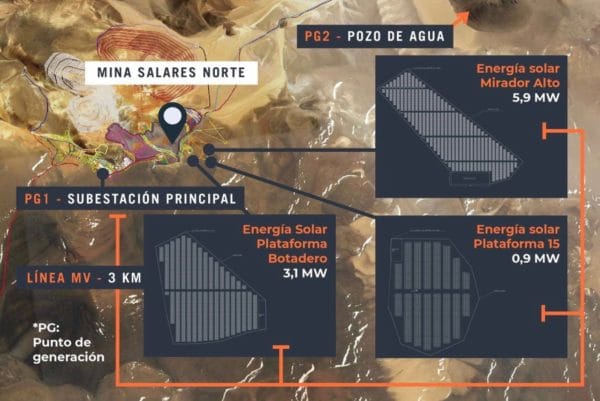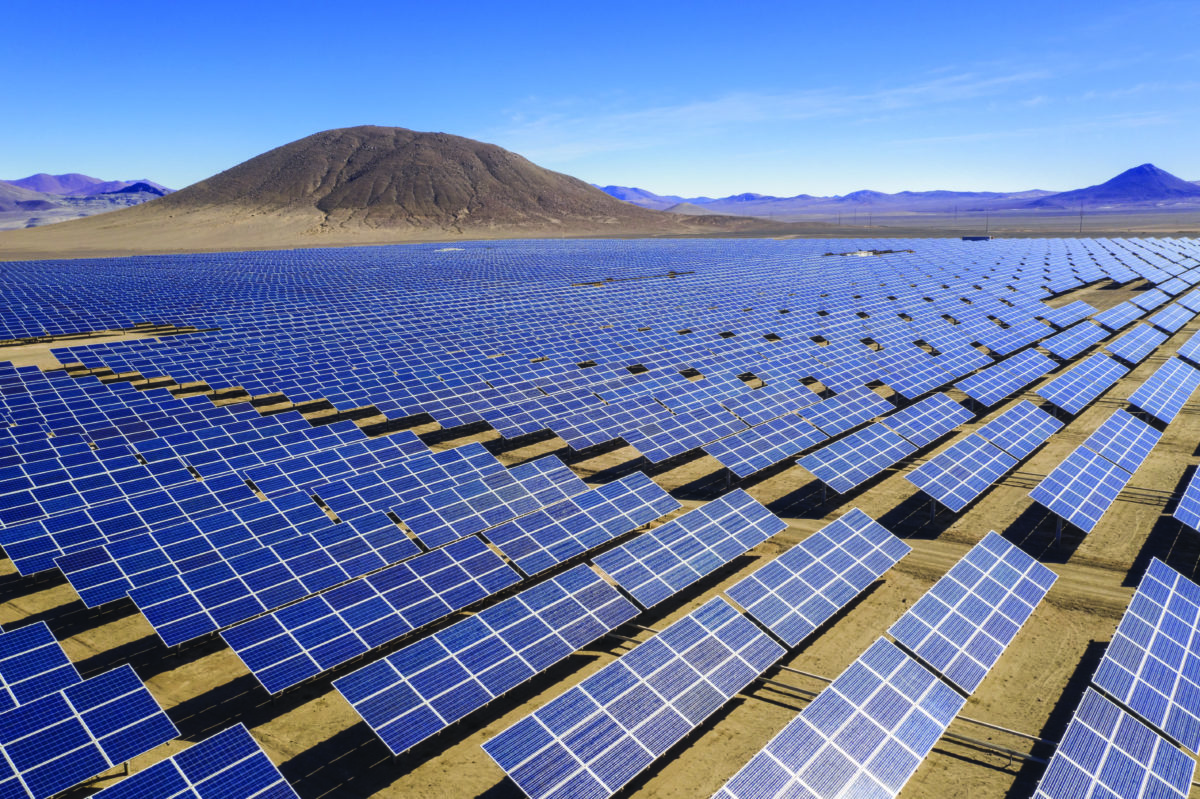When Gold Fields set itself a 20% renewable energy requirement across its global mining operations, there was no doubt some of its mines posed less of a difficulty to transition than others. In Western Australia (WA), Aggreko installed one of Australia's largest microgrids, 7.7 MWp of modular solar generation. However, while the Granny Smith gold mine is remote by any standard, it is not quite as remote, or remote in the same way, as the Salares Norte open pit mine in Chile which sits at an altitude of 4,500 meters in the Andes, 190 kilometers from the nearest town.
However, the significant challenge of building a solar PV installation at a remote high-altitude location has not fazed Aggreko. The British-based modular solar company signed a 10-year contract with Gold Fields to provide a 25.9 MW hybrid solar and thermal power modular solution across the mine's five distribution points.
Pablo Varela, managing director of Aggreko LATAM, told pv magazine that the Salares Norte site posed a unique challenge compared to the Granny Smith project. To combat the extreme winds and ensure consistency of power across all five delivery points, “Aggreko has developed high-altitude performance diesel gensets and Solar Power units specifically designed to meet the extreme wind, snow, and altitude conditions at the site — adaptations which were not required at the Granny Smith site.”
Of course, it should be pointed out that the Granny Smith hybrid was of solar and gas with integrated battery storage while the Salares Norte project comprises a hybrid of solar and diesel.
Each diesel gensets can deliver 772 kW and incorporate Spinning Reserve and Cold Reserve units to manage demand peaks after integration with 9.9 MW of solar. The solar array, capable of delivering 18 GWh of renewable energy annually, will sit in a fixed dome structure with East-West exposure and be reinforced to withstand battering winds. “We have chosen to implement fixed-tilt solar units rather than tracker solutions. This is to ensure the longevity and reliability of the PV units,” said Varela.
“Our engineers are used to developing solutions which can run efficiently in even the most challenging of climate conditions.” And it is no surprise that such challenging climatic conditions also make the site remote. Due to this isolation the reliability of the system is integral.
According to Varela, not only will the carefully calibrated fuel mix help to ensure reliability, “but also by making the decision to have a team of engineers based at the mine once it is operational. Although we have the capability to monitor and carry out O&M remotely, the extreme conditions can make access a challenge so we want to mitigate this risk where we can.”
Popular content
The mine, as previously stated, is spread across five delivery sites, each cradled in mountainous nooks and crannies. “The site is restricted in terms of the amount of space it has,” continued Varela, “which means our engineering team had to be quite creative. Our solution was to split the power supply over three sites, rather than trying to fit it all into one restricted space.”

On completion, Aggreko estimates the hybrid system will save Gold Fields $7.4 million in energy over the decade and a further $1.1 million in carbon tax offset.
Moreover, as a modular rental installation, now becoming a very attractive option for remote mine sites, Gold Fields doesn't have to fret about a single significant investment but rather a consolidated CAPEX outlay.
The Salares Norte solar hybrid project will be Aggreko's largest solar installation in Latin America to date. Varela expects the site to be operational in Q2/Q3 2022. Aggreko is keen to use the Salares Norte project as a springboard for its Latin American ambitions. “We have a number of exciting projects in the region covering a broad span of applications, technologies and geographies,” Varela said. “From the rainforest to the Argentinian Pampa, from landfill gas to remote battery storage, we deliver power wherever it's needed.”
This content is protected by copyright and may not be reused. If you want to cooperate with us and would like to reuse some of our content, please contact: editors@pv-magazine.com.



Confused…. is the mine in Australia or South America?
Did not realize Australia has 4500m mountains or mines… Please clarify as the Internet appears to give the Mawson Peak (2745m) this title… of highest peak in Australia…
Hi Ajay, thanks for your comment. The mine is in Chile, but the project is comparable in size (of solar) to a previous Aggreko project in Australia with the same mining company. I can assure you that Australia is still the flattest continent on earth, although its highest peak (more of a hill) is not Mawson Peak but Mount Kosciuszko.